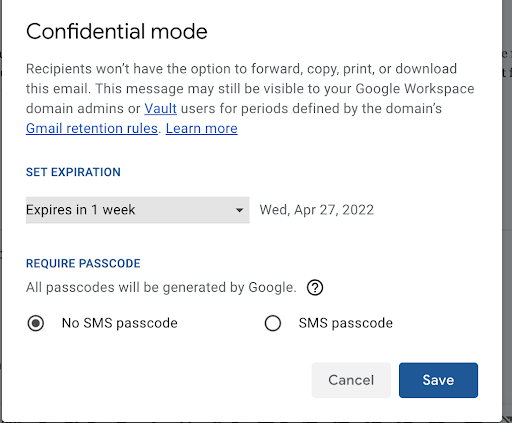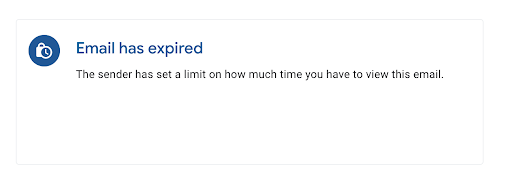Working with New York City's Department of Education

The New York City (NYC) Department of Education (DOE) is the largest school system in the nation with a diverse student population. Teachers College (TC) researchers interested in working within an NYC DOE site must first be approved by TC’s Institutional Review Board (IRB), and then approved by the NYC DOE IRB prior to participant recruitment.
DOE allows researchers to conduct studies in their school system, however, research activities must not compromise the privacy of their students and their families, or disrupt the work of students, staff, and educators. All research proposals must meet professional standards for the treatment of human subjects, research design, and ethical practices, and additionally must have relevance for the NYC public school system.
The participant materials on file between the two institutions (TC IRB and NYC DOE IRB) must be identical. In other words, a modification to TC IRB should be submitted to reflect the requested revisions made by NYC DOE IRB to make both IRB protocols identical. Updates to the TC IRB application should also be made to reflect changes to the research protocol. Click this link How to Submit a Modification, Continuing Review, Adverse Event, and Deviation to learn how to modify an already approved TC IRB protocol.
Researchers should consult the DOE IRB’s website for the latest policy updates and submission guidelines.
Where can I find information about a DOE IRB protocol submission?
An explanation of the DOE IRB proposal submission process is available on the NYC DOE IRB website.
Researchers who plan to engage with the NYC DOE IRB can use the NYC DOE IRB Protocal Research Submission Guide in support of their research work.
Researchers are encouraged to review the Institutional Review Board Information for School Principals section. This page provides information for school site principals to review. Researchers should understand what expectations principals will have of a researcher during the recruitment and research phase of a study.
Researchers may also be interested in accessing individual-level (student, staff, or teacher) data from New York City schools for research studies or evaluations. School staff (teachers, principals, administrators, etc.) cannot directly provide individual-level data to researchers. A formal data request form must be submitted to the NYC DOE IRB for review. To access individual-level data, researchers must submit an NYC DOE Data Request.
Researchers are encouraged to explore the following links to publicly available student-level data (e.g., graduate rates, demographics, etc.) prior to designing school-based research:
Collaborative Institutional Training Initiative (CITI) Modules for NYC DOE Schools
The New York City Department of Education (NYC DOE) Institutional Review Board (IRB) requires all investigators who wish to conduct research at NYC DOE sites to complete the Social & Behavioral Research – Basic/Refresher course (ID 184110) on CITI's website. Researchers can affiliate with NYC DOE through CITI’s website to complete their corresponding CITI modules. For NYC DOE IRB questions, please email IRB@schools.nyc.gov or visit CITI’s Support Center for questions about their training modules.
What forms should be included with an NYC DOE IRB protocol?
Depending on the research design, the following forms should be submitted with the NYC DOE IRB research protocol:
- IRB approval letter from Teachers College IRB (received after submitting the research protocol to TC IRB).
- Consent Form, Assent Form, and Parent/Guardian Permission Form as applicable using NYC DOE IRB templates (see below).
- Parent/guardian permission forms may be sent home with students, however, they must be returned directly to the researcher either in a meeting with the parents, a self-deposit box, or in a self-addressed, stamped envelope provided for that purpose.
- Student assent forms (or scripts) for individuals under 18 years old should be written in age-appropriate language. Please see our Writing for an IRB Review page for more information on creating appropriate participant materials.
- Teacher consent forms should distinguish between what is typical classroom practice, and what are research-related activities.
- Principal permission forms (i.e., site permission forms) should itemize who will be recruited for the study, for what study activities, and for how long.
- If a researcher is interested in interviewing a principal for a research study, they should consider whether guaranteeing confidentiality is possible, given the prominent professional role and notoriety of the principal.
- A researcher conducting a classroom study cannot disrupt typical classroom learning, or overburden teachers' time.
All DOE IRB consent (assent and permission) forms should include the following:
- A brief description of the study and what will be expected of participants.
- A statement of risks and benefits related to participation.
- Research should involve minimal risk to participants.
- A plan for how researchers will assist research subjects who might experience distress as a result of their participation in a study (e.g., a list of counselors who can be consulted, stopping the study, etc.).
- A statement that participation is voluntary, and that participants may withdraw from a study at any time without penalty (or negative consequences).
- Where appropriate, researchers should specify that a study will not impact a student’s class grade or class standing.
- Where appropriate, researchers should specify that a study is not an evaluation of a teacher’s performance, and that the study will not impact a teacher’s employment or career status.
- A signature line for consent and parent permission forms, and for students who can sign an assent form.
- A separate signature line when researchers plan to use audio or video recordings.
- An explanation of how researchers will ensure confidentiality and, whenever possible, participant anonymity, along with procedures for securing and disposing of data.
- Contact information for the researcher and the researcher’s IRB.
Where should I submit my research proposal?
All proposals and research-related documents must be submitted online through the DOE’s IRB Manager. For information on the DOE IRB, visit NYC DOE's website. To learn how to use the DOE IRB Manager, visit this link. For a direct link to IRB Manager, click here.
If you are unable to login to IRB Manager, please send an email to support@IRBManager.com to receive help.
What security clearances do I need to access NYC schools?
Prior to contacting individual schools or principals, all designated personnel named in this protocol to conduct research in NYC public schools with NYC DOE staff or students, or using NYC public school student data, must complete the NYC DOE security clearance process. This includes but is not limited to being fingerprinted by the NYC DOE. To initiate the security clearance process, all named participants must submit scanned copies of the following required documents to IRB@schools.nyc.gov:
- Stamped IRB Approval Letter
- Government Issued State ID
- Signed Social Security Card
- Current email address and phone number
Information will then be entered into the PETS system and researchers will recieve a nomination email from PETSAdminSupport@schools.nyc.gov within 7 business days that will outline all the next steps in the security clearance process, including login access to Applicant Gateway, where all required forms can be found. If researchers have fingerprints on file with the NYC DOE IRB and they have been active with our system within the past six years, they simply update the online forms. For researchers requiring fingerprinting, once all required forms are completed and signed, follow the directions provided to schedule the fingerprinting appointment through IdentoGo. Please note:
- Fingerprinting is no longer conducted at 65 Court Street.
- Fingerprinting is conducted on an appointment-only basis.
- The cost for fingerprinting is currently $101.75
What else do I need to know about DOE IRB?
The NYC DOE IRB is currently processing a very high volume of submissions. Each round of review may take 6-8 weeks, not accounting for office closures. All protocols are processed on a rolling basis (first-come, first-served). The NYC DOE IRB meets once a month. Select protocols are assigned for review by the Full Board following initial review and revision. Selected protocols are assigned to the Full Board for review on a rolling basis.
Even if a study is deemed exempt or expedited by TC IRB, the NYC DOE IRB may determine that the study will go for Full Board Review. This can potentially affect how long the study will take until it is approved.
Site recruitment and data collection may not begin until after review and approval by TC and DOE IRB.
If you plan on conducting in person research with the NYC DOE, be prepared to justify why your study must be conducted in person.
The NYC DOE IRB requires that all consent, assent, and parental consent forms be drafted in the following required templates:
- DOE Adult Consent Form Template
- DOE Minors 7 to 11 Years Assent Template
- DOE Minors 12 to 17 Years Assent Template
- DOE Parental Permission Template
CITI training is required for all researchers associated with human subjects research submissions, and must be completed before submission to both the TC IRB and the DOE IRB. TC researchers can visit the Training & Certification page for information on CITI training.
What about DOE IRB protocol renewals (study continuations)?
All protocol renewals must be submitted at least 90 days prior to the protocol expiration date, which is detailed in the initial approval letter and subsequent renewal approval letters. A lapse in protocol approval must result in immediate suspension of all research activities, including, but not limited to, analysis of collected data and interactions with study subjects.
General questions about the IRB process should be emailed to IRB@schools.nyc.gov.


